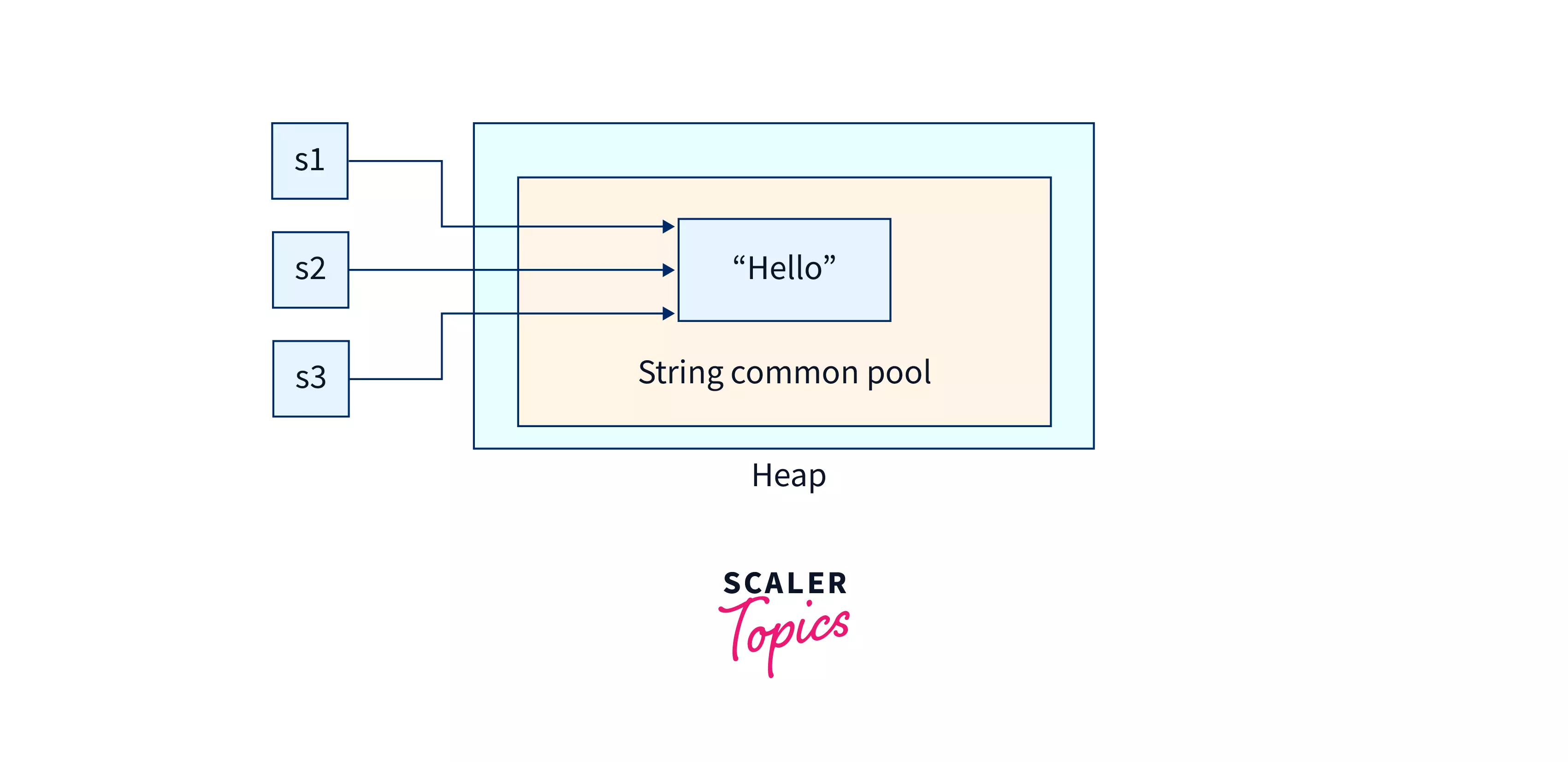Why Are Strings Immutable in Java? Best Practices and Use Situations
Why Are Strings Immutable in Java? Best Practices and Use Situations
Blog Article
What Is Unalterable Strings and Just How It Functions
In the world of shows, comprehending the concept of immutable strings is extremely important for developing robust and protected applications. Immutable strings refer to strings that can not be altered after they are created, making certain information stability and predictability within the code. This basic concept plays a crucial role in numerous programs languages and provides an unique technique to dealing with information. By discovering the intricacies of how immutable strings function, one can reveal a globe of benefits and possibilities that can elevate the high quality and efficiency of software application growth.
The Basics of Unalterable Strings
Unalterable strings, as a fundamental concept in programming, are character series that can not be transformed once they are created. This means that when a string is appointed a value, that worth can not be altered. In languages like Python and Java, strings are immutable things, causing numerous implications in regards to memory management and data stability.
Among the key advantages of immutable strings is that they provide a complacency in information adjustment. Given that the material of an unalterable string can not be modified, it ensures that the initial information continues to be undamaged, minimizing the risk of unplanned modifications throughout program implementation (Why are strings immutable in Java?). This residential or commercial property also simplifies debugging processes, as developers can rely on that once a string is defined, its worth will certainly not be accidentally changed
When a new string is created based on an existing one, rather than customizing the original string, the brand-new worth is kept separately. In general, recognizing the essentials of unalterable strings is essential for understanding shows concepts and enhancing code effectiveness.
Benefits of Immutable Strings
Structure upon the protection and efficiency benefits of unalterable strings, their benefits extend to enhancing code integrity and streamlining concurrent shows tasks. By being immutable, strings can not be customized after production, which eliminates the risk of unexpected adjustments in the data they store. This intrinsic immutability guarantees that when a string is developed, its worth continues to be continuous throughout the program's execution, lowering the chances of pests created by unforeseen modifications.
In addition, unalterable strings add to code reliability by making it less complicated to reason regarding the state of a program. Since strings can not be altered, designers can rely on that a string will certainly always hold the very same worth, simplifying debugging and upkeep initiatives. This predictability results in extra reputable and steady codebases.

Application in Programming Languages
Within numerous programs languages, the incorporation of immutable strings is a fundamental element that influences exactly how data is managed and controlled within code frameworks. The application of immutable strings varies throughout different programs languages, with each language supplying its own systems to support this idea.

On the other hand, languages like C and C++ do not have built-in support for immutable strings. Developers in these languages need to by hand execute immutability by enforcing policies within their code to stop direct modifications to string objects.
Finest Practices for Dealing With Unalterable Strings
When dealing with unalterable strings in programming languages like Java and Python, sticking to finest methods makes certain secure and reliable information control. Among the vital finest techniques is to use StringBuilder or StringBuffer as opposed to straight adjusting strings, particularly when handling substantial concatenation their explanation procedures. These classes supply mutable alternatives for string adjustment, assisting to stay clear of unneeded memory allowances and boosting performance.
Furthermore, when working with sensitive data such as passwords or API keys, it is vital to stay clear of keeping them as ordinary message in unalterable strings. Utilizing secure storage systems like char arrays or specialized collections for handling delicate details helps mitigate protection dangers connected with immutable strings.
Real-world Applications and Instances
Checking out sensible implementations of unalterable strings in numerous industries reveals their considerable effect on data honesty and system reliability. In the healthcare industry, unalterable strings play a crucial function in making sure the protection and discretion of person information. By avoiding unauthorized adjustments to sensitive info such as clinical records and prescriptions, immutable strings help preserve conformity with rigorous privacy laws like HIPAA.
Monetary institutions likewise take advantage of the immutable nature of strings to boost the protection of consumer data and purchase records. Immutable strings assist prevent scams and unauthorized modifications to monetary information, providing a robust protection versus cyber threats and making sure the depend on and self-confidence of clients.

Verdict
In final thought, unalterable strings are dealt with and unchangeable series of characters that provide benefits such as thread safety and enhanced efficiency in programs. They are carried out in numerous programming languages to ensure data integrity and security. Ideal techniques for collaborating with unalterable strings consist of staying clear of direct alterations and making use of approaches that return new string objects. Real-world applications of immutable strings consist of data encryption, caching, and string control jobs.
Unalterable strings refer to strings that can not be changed after they are created, ensuring information integrity and predictability within the code. When a new string is created based on an existing one, instead than modifying the initial string, the brand-new value is kept independently.In languages like Java and Python, strings are immutable by default, indicating that as soon as a string object is produced, its worth can not be transformed - Why are strings immutable in Java?. Finest techniques for functioning with unalterable strings include avoiding straight modifications and using techniques that return read more new string objects. Real-world applications of unalterable strings include information encryption, caching, and string adjustment jobs
Report this page